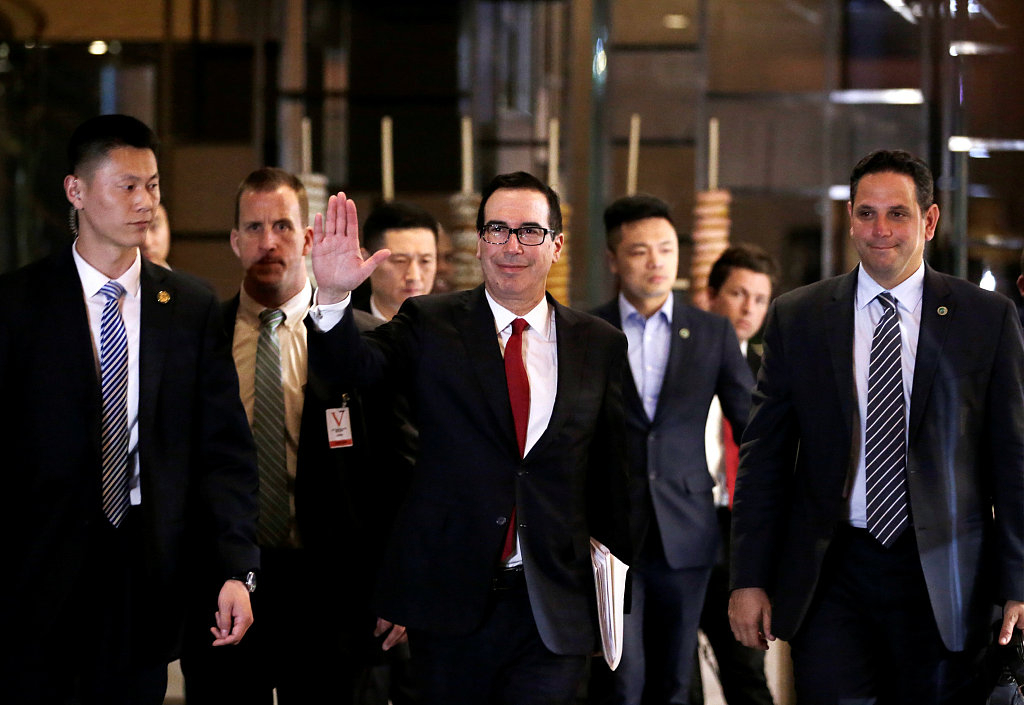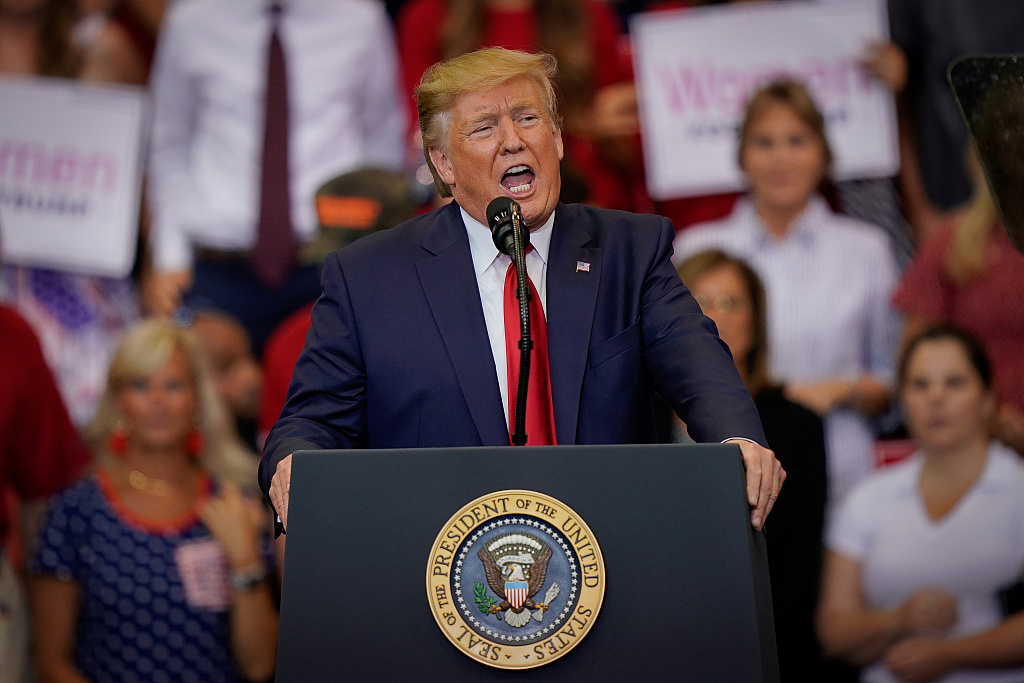

Editor's note: Thom Brooks is the dean of the Durham Law School and a professor of Law and Government. The article reflects the author's opinions, and not necessarily the views of CGTN.
U.S. President Donald Trump is expected to expand his trade war to include the EU. This is being justified as a kind of retaliation for a recent World Trade Organization ruling against subsidies provided by the EU to support manufacturing of large civilian aircraft.
Trump's actions are aimed to hit the EU across a range of goods, including food items like cheese, olives and whiskey and metals like iron pipes and copper based alloys. The total trade value will be about 4 billion U.S. dollars.
These tariffs come off the back of Trump's trade war with China that has regularly made news headlines around the world.
Trump's position is more political than economic. He has not simply created barriers to trade with China, but he has actively tried to encourage others to do the same to send a message. An example is his fierce criticisms of the UK government's decision to allow Huawei to build the non-core part of a new 5G system.

U.S. Treasury Secretary Steven Mnuchin, as a member of the U.S. trade delegation to China, waves to the media as he returns to a hotel in Beijing, China, May 3, 2018. /VCG Photo
Likewise, Trump's new tariffs on EU goods may have the WTO as its formal justification, but its roots are perhaps more likely found in the White House's support for Brexit. Higher tariffs with a possible no-deal British exit would weaken the EU economically as well as geopolitically – and this is precisely the game that Trump is playing.
If so, this raises the question of what purpose do these actions serve? Trump's opposition to the UK's moving ahead with Huawei has done nothing to scupper plans. Nor will any new tariffs on EU goods exert any influence on softening its position on a Brexit deal.
These actions don't make Americans better off in our globalized, interconnected world either. Superpowers and globalization can't simply be ignored as irrelevant or unwanted. Increasing protectionism may only lead to the decline of U.S. productivity as an inward-facing economy becomes less competitive and innovative.
So if these actions may well damage U.S. interests, why do it at all? The likely answer is Trump's decisions are motivated by playing to his supporters. However wrongly, they believe ineffective or even counterproductive trade wars are the kind of thing that shows America standing tall even if poorer and its global influence much diminished under the current president.

U.S. President Donald Trump speaks at a campaign rally in Cincinnati, Ohio, U.S., August 1, 2019. /VCG Photo
In America's so-called rust belt where manufacturing has been in decline, Trump supporters believe the road to recovery is through protectionism. But what made the sector so successful was, in part, its making products for the export market. However, as the U.S. tries to raise barriers to imports, this will not help its export market.
Trump's protectionism will leave his base worse off. Instead of investing time in creating a higher wall, the U.S. should be investing heavily in higher education and vocational qualifications. This will go far in creating a more highly skilled workforce able to successfully manage the sifting sands of global trade. Failing to do so leaves a population stuck.
While Trump promised to make America great again, he has instead done more than any president before him to show how weak and withdrawn the once internationalist U.S. has become. As it continues to see its global position shrink, the concern for all of us is that the U.S. will respond by the use of more sanctions and trade barriers rather than adapt to the newly emerging global balance of power. For such a change, the U.S. needs not only leadership but a new president – and this is still a long way off.
(If you want to contribute and have specific expertise, please contact us at opinions@cgtn.com.)

Copyright © 2018 CGTN. Beijing ICP prepared NO.16065310-3
Copyright © 2018 CGTN. Beijing ICP prepared NO.16065310-3